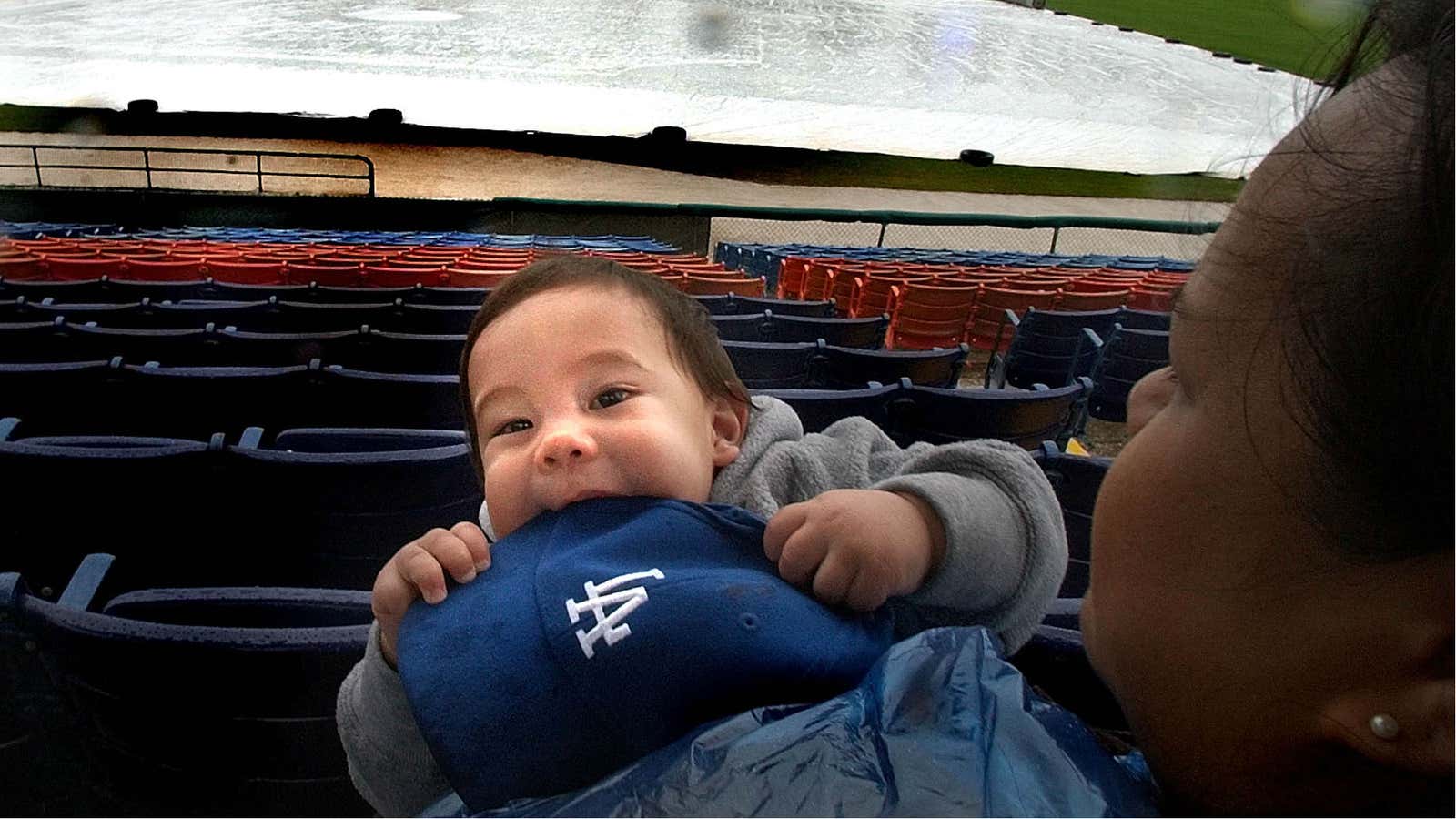Twenty-seven years after the US Food and Drug Administration (FDA) approved a mild oral painkiller for over-the-counter use, the agency is reversing its stance.
On May 22, the FDA issued a warning about over-the-counter products containing benzocaine, citing “serious safety concerns” and a “lack of efficacy for teething.” The painkiller can be found in Baby Orajel, a gel that can be spread over the gums, as well as in other sprays, gels, and lozenges.
In children under two, benzocaine can cause a condition known as methemoglobinemia, where oxygen levels in the blood are abnormally low. Symptoms include a gray or bluish appearance, especially in the lips and nail beds, as well as rapid breathing and an elevated heart rate. They can occur a couple of minutes to several hours after receiving a dose of a product containing benzocaine. In some cases, methemoglobinemia can be fatal.
The FDA’s warning is an update to a statement the regulatory agency made seven years ago. At that time, the FDA was aware that methemoglobinemia was a rare reaction to benzocaine; it had received a total of 319 reports of this particular complication, not limited to children. Seventy-two of them occurred between 2006 and 2011. In that statement, the FDA said it planned to monitor benzocaine products, and would update advisories as needed.
In addition to warning consumers this week, the FDA sent a letter (pdf) to companies that sell these products, request that they discontinue any lines marketed for teething relief. According to the letter, benzocaine products marketed to adults—including Orajel, Anbesol, Cepacol, and Chloraseptic—are still considered safe, but need to contain two additional warnings: one telling users that the product shouldn’t be used for children under two, or for teething, and another about the risks of methemoglobinemia.
Even before the latest warning, the American Academy of Pediatrics did not endorse these types of teething painkillers. Tiny baby bodies can easily swallow too much of a particular painkilling gel, it says. It’s better to give your child a rubber teething ring or a gentle finger massage (frozen toys have been known to also cause oral injuries).
